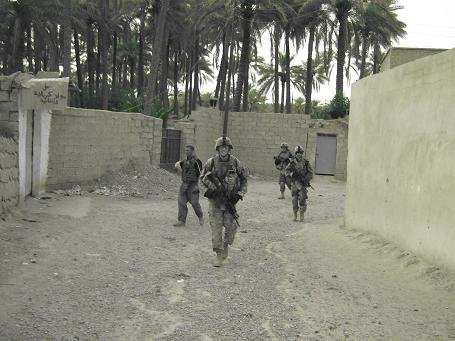Coming Home: Homelessness and Unemployment
For many of Oklahoma’s returning soldiers, mental, physical and legal issues are only exacerbated by the challenges they face reintegrating into their families and society. Two of the top issues veterans face, particularly those plagued by mental illness and physical injury, are homelessness and unemployment.
“For veterans who have become disabled physically or mentally, the need for housing with ongoing supportive services may be difficult to obtain,” says Gregory A. Shinn, associate director of Mental Health Association Oklahoma. “Though many disabled vets may be eligible for disability payments through the VA, this is a process that can take time. With little or no income, access to housing options is even more limited, and this can lead to veterans falling through the cracks and ending up homeless.”
To qualify for veterans benefits, a veteran must have an honorable discharge, but not all veterans have the status, Shinn says.
“Typically, somewhere between 15 and 20 percent of homeless individuals in a community are veterans. However, Tulsa is among the leaders nationally in reducing chronic homelessness among veterans,” Shinn adds.
Offered through the Community Service Council, the Support Services for Veterans Families grant provides short-term case management and rental assistance, known as Rapid Re-Housing. The program aims to prevent homelessness and assist those who are already homeless.
The VA’s Per Diem Program for homeless and disabled veterans at Yale Apartments provides transitional supportive housing with full services on-site along with ongoing case management and health and mental health care from the VA.
The HUD-VASH (Veterans Affairs Supportive Housing) offers Section 8 subsidies and ongoing case management at Scattered Site Program-supported housing locations across the community. At last count, the Mental Health Association Oklahoma had 34 veterans in HUD-VASH units at multiple locations.
Veterans may also have difficulty reentering the job market and require additional training to help them become more competitive.
Tanner says the CSC has received multiple grants from the Wounded Warrior Project, including one funding employable skills training for veterans.
Providing back-up support to many of these initiatives is the much maligned, if well intentioned, federal veterans affairs department.
“The VA has been a fantastic partner with the Mental Health Association in Oklahoma for many years,” Shinn says. “The services offered and the professional staff have significantly improved over time … We have seen significant reductions in the veteran homelessness, especially chronic homelessness, in the last few years.”
Shinn says he believes that former VA Secretary Shinseki provided the leadership to end homelessness for veterans and made the resources available to local organizations to accomplish it.
“I believe it is possible that Tulsa will be able to report zero chronically homeless veterans in the very near future – maybe in less than a year,” Shinn says.























